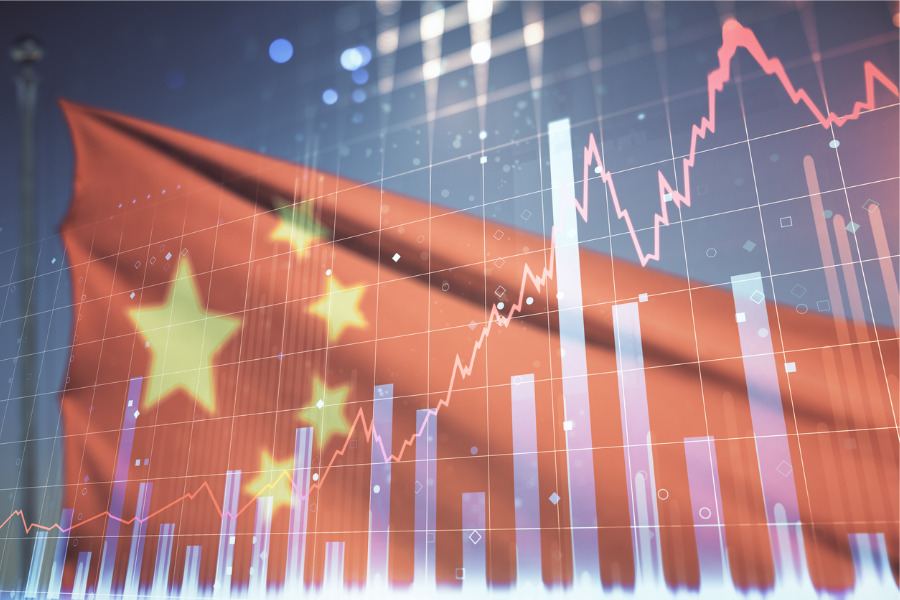

Technology stocks led losses Wednesday morning after Nvidia Corp. and Advanced Micro Devices Inc. said President Donald Trump’s administration has curbed the export of its chips to China, while ASML Holding NV offered a disappointing earnings report.
The S&P 500 Index slid 1.43%, while the Nasdaq 100 Index dropped 2.21%. Nvidia sank as much as 7% after warning it will report around $5.5 billion in related charges during the fiscal first quarter, with AMD down 6.01% as it expects to take a charge of as much as $800 million. ASML plummeted 6.09%. The Philadelphia Stock Exchange Semiconductor Index fell 4.02%.
“This is a shot across the bow from the White House and it shows China now has a ‘Do Not Enter’ sign for Nvidia and other tech players,” said Dan Ives, senior equity research analyst at Wedbush Securities.
The White House put new restrictions on semiconductor exports to China, impacting Nvidia’s H20 chip and AMD’s MI308 products unless the companies secure a license — the latest escalation of Washington’s tech battle with Beijing. Meanwhile, ASML reported orders that missed analyst estimates and said it doesn’t know how to quantify the impact of recent tariff announcements.
“Considering how important large-cap tech has been to the broader equity rally these last few years, it goes without saying that these headlines are worrisome,” said Dan Greenhaus, chief strategist at Solus Alternative Asset Management.
The World Trade Organization slashed its forecast for merchandise trade this year as soaring US tariffs and broader uncertainty hammer international commerce. The entity expects the volume of world merchandise trade to decline by 0.2% in 2025, the contraction could be even worse if the US pushes ahead with higher levels of so-called reciprocal tariffs.
The developments in the tech sector overshadowed signs that China is willing to negotiate on trade after the nation said it was open to trade talks with the Trump administration if its officials rein in disparaging remarks.
Elsewhere Wednesday morning, US retail sales rose substantially in March on a jump in car purchases and other goods such as electronics, suggesting consumers were scrambling to get ahead of tariffs.
US stocks had entered into a period of relative calm in recent days following a volatile stretch which saw the S&P 500 log six consecutive sessions with a peak move of 4% in either direction, the longest such run since the March 2020 pandemic downturn.
Growing optimism from corporate executives stands in contrast to the broader risk-off mood. Corporate insiders scooped up shares of their own companies at the fastest pace in 16 months as the S&P 500 sank in March, and they kept buying at an elevated clip as the rout accelerated this month in the wake of Trump’s global tariff rollout.
In individual movers, Hertz Global Holdings Inc. shares soared after Pershing Square Capital Management revealed a large stake in the beleaguered car rental company. JB Hunt Transport Services Inc. shares dropped as analysts point to continuing concerns about the impact of tariffs and the broader economy on the trucker.

While industry statistics pointing to a succession crisis can cause alarm, advisor-owners should be free to consider a middle path between staying solo and catching the surging wave of M&A.

New joint research by T. Rowe Price, MIT, and Stanford University finds more diverse asset allocations among older participants.

With its asset pipeline bursting past $13 billion, Farther is looking to build more momentum with three new managing directors.

A Department of Labor proposal to scrap a regulatory provision under ERISA could create uncertainty for fiduciaries, the trade association argues.

"We continue to feel confident about our ability to capture 90%," LPL CEO Rich Steinmeier told analysts during the firm's 2nd quarter earnings call.
Orion's Tom Wilson on delivering coordinated, high-touch service in a world where returns alone no longer set you apart.
Barely a decade old, registered index-linked annuities have quickly surged in popularity, thanks to their unique blend of protection and growth potential—an appealing option for investors looking to chart a steadier course through today's choppy market waters, says Myles Lambert, Brighthouse Financial.
